Cats are often seen as enigmatic creatures, and their behaviors can sometimes be as confounding as their midnight zoomies. Among the various puzzling behaviors, inappropriate elimination — specifically, cats pooping outside their litter box — has perplexed many cat owners. Understanding the ‘whys’ behind this conduct and learning how to guide your feline friend back to proper litter box habits is essential for a harmonious human-cat coexistence.
Unraveling the Reasons Why Cats Poop On the Floor
Cats communicate through their behavior, and a cat who is pooping outside the litter box is often their way of saying something is amiss – usually medical issues or behavioral problems. This is something no cat parent wants for their furry friends. Let’s delve into the potential reasons behind this behavior:
Health Concerns and Medical Conditions
Cats are known for their cleanliness and they are creatures of habit, so when they start avoiding the litter box, it’s a sign something may be amiss. Here are some medical reasons why cats might do this:
- Constipation or Diarrhea: Discomfort during bowel movements might lead cats to associate the litter box with pain.
- Urinary Tract Infections (UTIs): UTIs and inflammatory bowel disease can cause a sense of urgency or discomfort that leads to accidents outside the box.
- Arthritis or Mobility Issues: Older cats may find it hard to get in and out of the litter box, especially if it has high sides.
Litter Box Preferences
Like humans, cats have preferences for where they do their business. An unclean litter box, unsuitable litter type, or an inconvenient location can all lead to litter box snubs. The sensory experience associated with litter types — from clumping to crystal, and scented to unscented — can significantly impact a cat’s willingness to use the box. The litter box design, whether it’s top-entry, open, or hooded, plays a role in feline comfort.
Emotional Distress and Environmental Stressors
Cats are highly sensitive to their environment, and any sudden changes — such as moving homes, rearranging furniture, or introducing new pets — can cause stress-induced litter box avoidance. This behavior is often a reaction to feeling insecure or overwhelmed. Maintaining a stable environment and providing comfort are key.
Behavioral and Territorial Issues
In multi-cat households, cats pooping outside their litter box may be a form of territorial marking or due to conflicts with other pets. It’s a call for personal space and may require managing cat dynamics through behavioral strategies.
Here are some triggers that may lead to behavioral issues like your cat pooping outside of the litter box:
- Stress and Anxiety: Moving into a new home or changes such as new pets or people, can disrupt your cat’s routine and lead to stress.
- Territorial Disputes: In multi-cat households, cats might poop outside the box to mark their territory.
- Litter Box Aversion: Cats may develop a dislike for the type of litter, the cleanliness, or the location of their box.
Seeking Attention
At times, cats may choose to eliminate inappropriately as a way to communicate their needs or to get your attention. This can be a sign that they require more interactive playtime, enrichment, or simply more of your attention.
For a complete guide to everything related to cat poop, visit our article: Cat Poop Explained: What’s Normal and What’s Not
Top 10 Tips to Keep Your Cat From Pooping Outside the Litter Box
Addressing inappropriate pooping on the floor starts with understanding and patience. Here’s how you can gently guide your cat back to good litter box practices:
1. Litter Box Cleanliness
Maintaining a pristine litter box environment is crucial for ensuring your cat feels comfortable doing their business where they should. Integrating litter deodorizers can help neutralize odors without overwhelming your cat with strong fragrances.
Commit to daily scooping, which is paramount for a clean space, and it also allows you to keep an eye on your cat’s health through their waste. One of our favorite ways to make sure the litter box is always clean is to use a self-cleaning litter box. You can see our review of the Best Self-Cleaning Litter Boxes here.
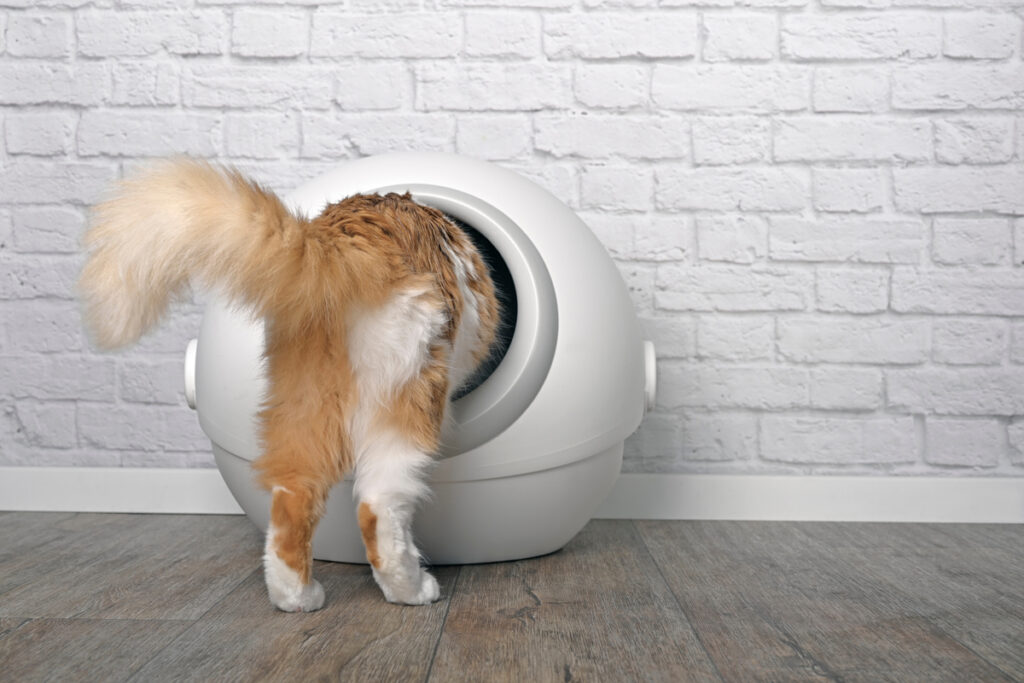
Equally important is the litter box location—choose a quiet, low-traffic area that provides privacy while still being easily accessible to your cat. A well-placed litter box, combined with diligent cleaning and the use of deodorizers, creates an inviting space for your cat and helps prevent any aversion that might lead to unwanted accidents around the home.
2. Litter Type and Preferences
Choosing the right litter for your feline companion is a delicate balance that hinges on their individual preferences and the qualities of the litter itself. Biodegradable litter options, which are kind to the environment and often gentle on paws, might appeal to eco-conscious pet owners and cats with a preference for a more natural litter texture. On the other hand, silica gel litter, known for its superior absorbency and odor control, can be a game-changer for those dealing with more pungent litter boxes. Sometimes the scent of the litter can be off-putting so unscented litter can help. There are even health monitoring litters that we review in our post of the Best Cat Health Monitoring Litters here.
3. Location of the Litter Box
The strategic placement of litter boxes within your home can dramatically affect your cat’s litter box usage. Having the litter box in the wrong place for your cat may cause big issues. It’s essential to place litter boxes away from the feeding area to respect your cat’s natural instincts for cleanliness and separation of their eating and waste elimination spaces. Quiet corners of your home can offer the tranquility and privacy cats crave for their litter box activities, reducing stress and promoting consistent use.
4. Adequate Litter Boxes in Multi-Cat Homes
In multi-cat homes, maintaining an adequate litter box ratio is a critical aspect of stress reduction and litter box compliance. The recommended guideline for a harmonious feline household is to have one litter box per cat, plus one additional, to prevent competitive behaviors and territorial stress. This ensures that each cat has access to a clean space when needed, which can significantly decrease the likelihood of inappropriate elimination. By providing sufficient litter boxes or an automatic litter box that is adequate for multiple cats, cat owners can foster a peaceful environment that respects each cat’s individual space and promotes healthy litter box habits.
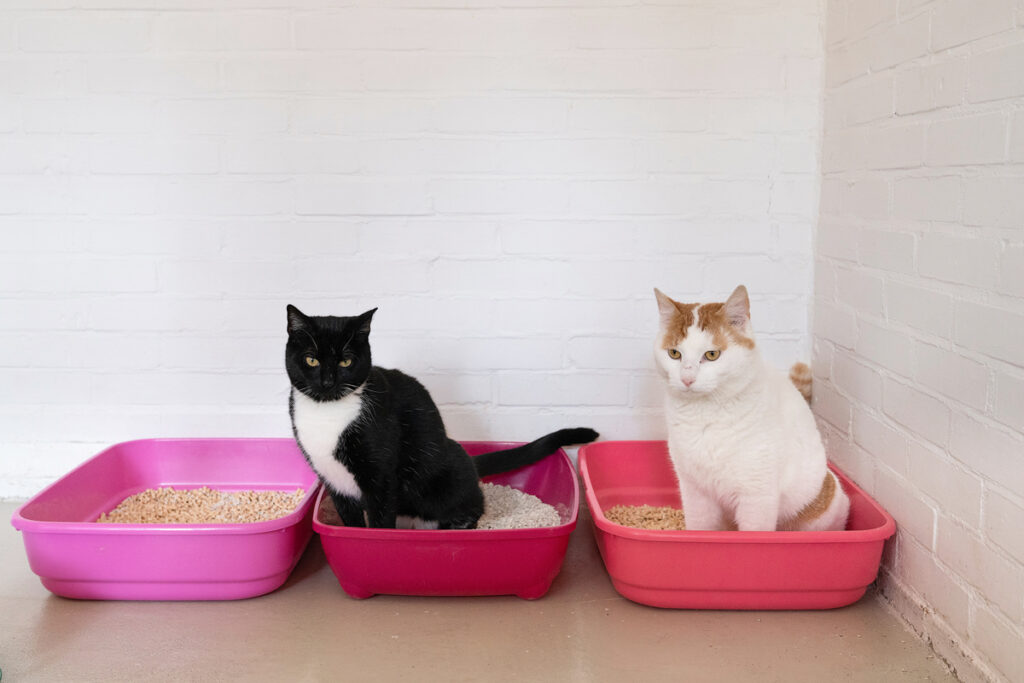
5. Stress Reduction Solutions
Reducing stress in your feline’s life is essential for their overall well-being and can positively impact their litter box habits. Pheromone therapy, often available as diffusers or sprays, can create a calming atmosphere and mitigate anxiety-driven behaviors. Providing safe spaces, like cozy hideaways or dedicated perches, allows cats to retreat and feel secure within their territory.
6. Respecting Privacy
Some cats prefer an enclosed space for elimination, while others may feel trapped in covered litter boxes. Observing your cat’s behavior can give you clues about their preference, and providing the right type of litter box can make all the difference.
7. Positive Associations
Encourage your cat to use the litter box by associating it with positive experiences. Treats, praise, and gentle encouragement can reinforce good cat behavior.
8. Patience Over Punishment
Responding to accidents with punishment can instill fear and increase stress, leading to more avoidance. Instead, use an enzymatic cleaner to remove odors and calmly redirect your cat to to the cat litter box.
9. Special Considerations for Older Cats
For senior cats, accessibility and comfort are paramount in preventing litter box issues. As cats age, they may face mobility challenges that necessitate litter boxes with low sides for easy entry. Placing these boxes in accessible locations without stairs or obstacles is crucial for the older cat. Soft, fine-grained litter can provide added comfort for potentially arthritic paws, ensuring that older cats can use their litter boxes without discomfort.
10. Expert Guidance
Seeking expert guidance from a feline behaviorist or veterinarian can offer a world of difference in understanding and resolving your cat’s litter box issues. These specialists provide customized strategies tailored to your cat’s unique personality and circumstances, ensuring that solutions are as effective as they are compassionate.
When to Seek Veterinary Advice
When your cat’s litter box habits change abruptly, it’s a potential red flag. This could be your first clue that something may be amiss with their health and may mean medical problems. Discomfort during elimination, such as straining or vocalizing, should immediately warrant concern. Similarly, the presence of blood in their stool or urine, a sign of possible infections or other health issues, is a sure sign to reach out to your vet.
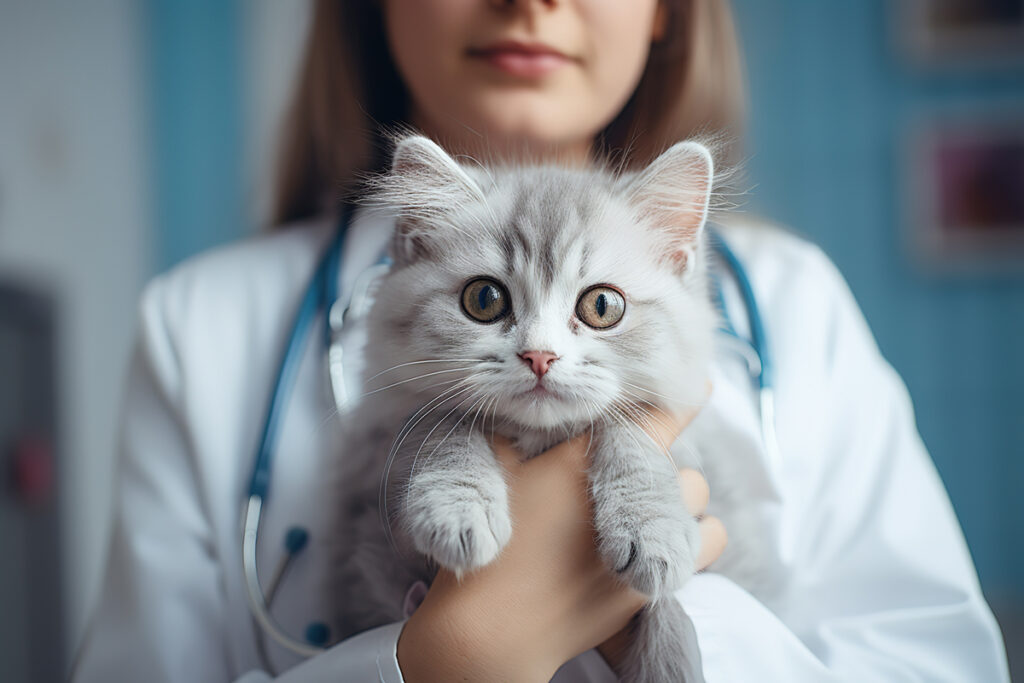
Signs of Discomfort: Pay attention to your cat’s overall behavior and demeanor as well. Cats in pain or experiencing illness may hide more, become less active, or show uncharacteristic aggression. If your typically sociable cat starts to withdraw or exhibits any dramatic behavioral shifts, it’s wise to consult with your veterinarian.
Visible Blood in Stool or Urine: Unpleasant changes in the smell of your cat’s stool can indicate digestive problems, and any persistent changes in stool consistency, like diarrhea or hard stools, should also prompt a veterinary visit. Additionally, weight loss or a sudden disinterest in eating could point towards health complications that need immediate attention.
Age-Related Concerns: For senior cats, who are more susceptible to health issues, even minor behavioral or physical changes can be significant. Regular check-ups become increasingly important as your cat ages, so any deviation from the norm should be taken seriously.
Conclusion: A Harmonious Solution
When cats poop outside of the litterbox, it can be a multifaceted issue, but with thoughtful observation and strategic adjustments, it’s often resolvable. By addressing both the environmental factors and your cat’s emotional needs, you can help ensure your companion’s return to proper litter box habits.
For in-depth guidance or persistent behavior issues, resources such as the American Association of Feline Practitioners (AAFP) or the International Society of Feline Medicine (ISFM) can provide expert advice and support. Of course, you’re local veterinarian or animal behaviorist is a great asset as well.
Incorporating these tips, along with patience and a keen eye for your cat’s unique preferences, can often lead to a resolution. Remember that each cat is unique, and what works for one may not work for another. Through patience, understanding, and sometimes professional guidance, you can navigate this challenge and maintain a clean, happy home for both you and your cat.

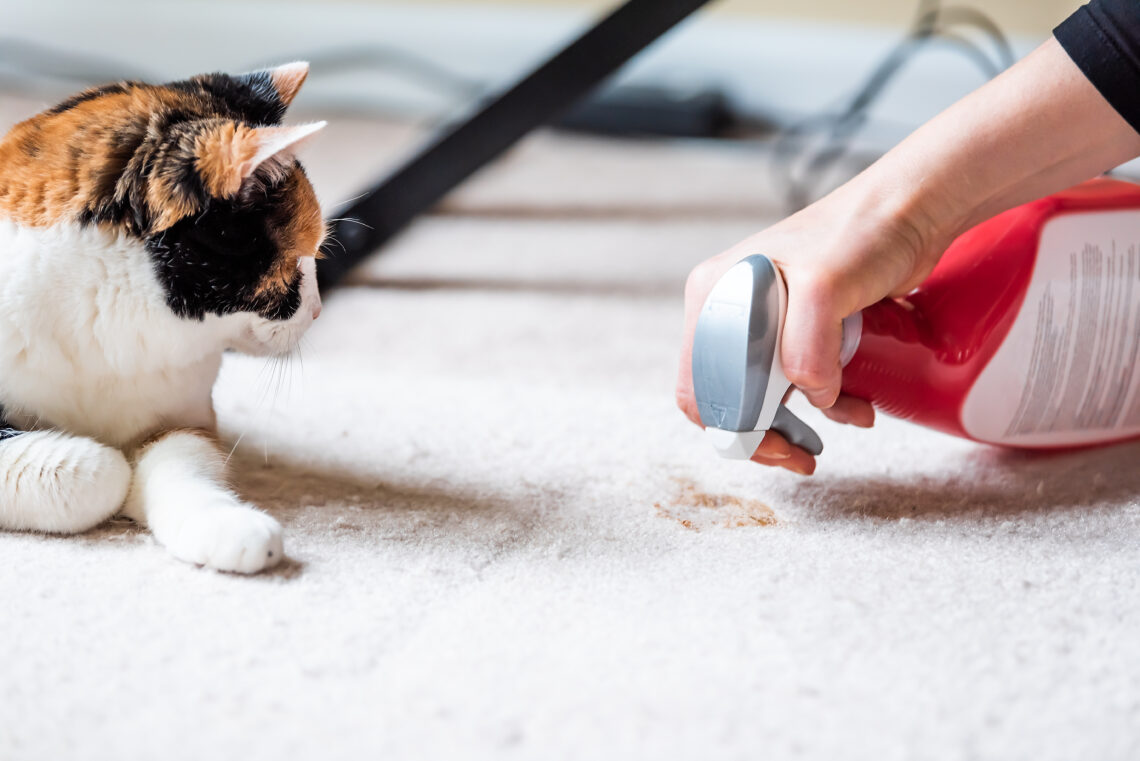
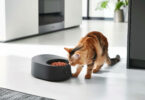



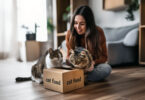


Leave a Comment